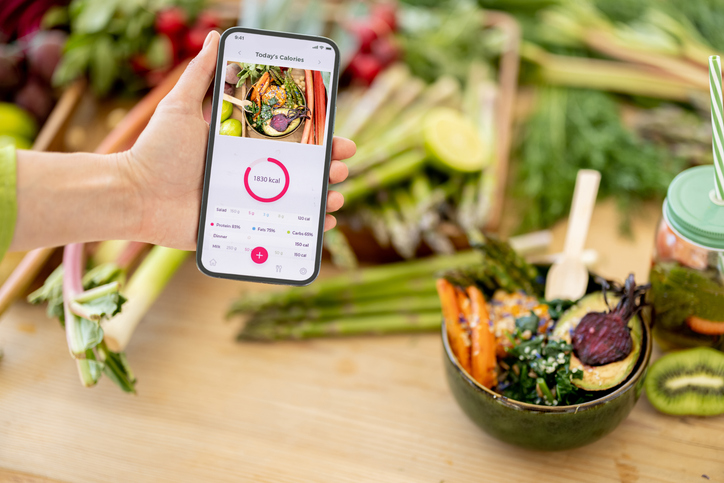The rise of AI-powered nutrition apps and social media trends has profoundly impacted how people make dietary choices, challenging nutritionists to adapt their practices to meet evolving client expectations. AI-based tools use advanced algorithms to track calories, suggest personalized meal plans, and even analyze nutrient deficiencies. These apps empower individuals with actionable data, often replacing traditional consultations for convenience. Nutritionists must understand these technologies to evaluate their accuracy and incorporate their benefits into personalized dietary advice while addressing their limitations, such as overgeneralized recommendations or potential biases in AI algorithms.

Social media trends, often driven by influencers and viral content, are shaping public perceptions of nutrition. Platforms like Instagram, TikTok, and YouTube propagate popular diet plans, superfoods, and “clean eating” movements, which can sometimes lead to misinformation. Nutritionists need to stay informed about these trends to address misconceptions and engage clients with credible alternatives. For example, debunking myths about fad diets like keto or detox regimens requires an understanding of their origins and social media traction. Additionally, nutritionists can leverage social media to disseminate accurate information and establish themselves as trusted voices in the digital health conversation.
Staying updated on these digital advancements requires continuous learning and professional development. Nutritionists can engage with health tech conferences, subscribe to journals focusing on AI in healthcare, and collaborate with app developers to influence how these tools evolve. This proactive approach not only enhances their technical knowledge but also equips them to assess the ethical implications of AI-driven dietary recommendations, such as data privacy and inclusivity in algorithm design. Training in digital literacy, including AI basics and analytics, is becoming increasingly essential to navigate the intersection of technology and personalized care effectively.
Furthermore, embracing these changes allows nutritionists to connect with a tech-savvy audience, enhancing their practice’s relevance and reach. By integrating data from apps into consultations, they can offer more precise, evidence-based advice while accommodating clients’ preferences for digital tools. Engaging with AI also fosters a collaborative approach, where nutritionists and clients work together using real-time data. As technology continues to influence dietary habits, nutritionists must position themselves as both skilled advisors and digital navigators, ensuring their guidance remains at the forefront of modern wellness trends.
- MyFitnessPal -
A comprehensive tracker with a vast database of over 18 million foods. It provides calorie and macronutrient tracking, community support, and wearable integrations. While its basic version is free, advanced features require a subscription - Noom -
Combines nutrition education with behavioral coaching. It’s popular for weight loss, providing tailored advice and personal coaching. A subscription is required after the trial period - Lose It! -
Focused on calorie counting and goal setting, this app supports wearable integrations and has an extensive food database. The premium version offers more features like macronutrient tracking - Lifesum -
Helps manage overall wellness with calorie tracking, meal planning, and hydration management. It includes healthy recipes and personalized plans - Fooducate -
Rates foods from A to D based on their nutritional content and provides tips for healthier choices. It also offers progress tracking and meal suggestions - MyNetDiary -
Offers detailed tracking of over 38 nutrients with a curated food database. It’s great for those seeking specific diet plans like keto or vegetarian - 8fit -
Combines fitness and nutrition with personalized meal and workout plans. It’s ideal for setting fitness goals alongside diet improvements - Carb Manager -
Tailored for low-carb and keto diets, this app tracks macronutrients and includes meal planning tools. Its premium version provides enhanced features - Yummly -
Focused on meal inspiration, Yummly offers customizable recipes and meal plans that align with specific dietary needs
What are things Nutritionists and Dietitians can take to stay up on emerging technologies
1. Engage with Emerging Technologies
• Use and Evaluate Apps: Nutritionists should personally explore popular nutrition apps like MyFitnessPal, Yummly, or Noom to understand their features, data accuracy, and user interfaces. This familiarity helps in advising clients about the strengths and limitations of these tools.
• Follow App Updates: Regularly monitor updates from app developers and health tech companies to learn about new features or algorithm changes.
• Participate in Tech-Oriented Webinars: Attend webinars or conferences on AI in health and wellness to grasp how innovations are shaping dietary advice.
2. Stay Informed on Evidence-Based Research
• Subscribe to Nutrition Journals: Leading publications often discuss the implications of digital tools and social media trends on dietary behavior.
• Analyze App Algorithms: Investigate how AI algorithms used in these tools derive recommendations and whether they align with clinical guidelines.
3. Monitor Social Media Trends
• Follow Key Influencers: Social media platforms influence public perceptions of food and health. Nutritionists should follow credible influencers and organizations to understand trending topics.
• Educate Clients on Misinformation: By staying updated, nutritionists can correct misconceptions stemming from viral diet trends or unscientific advice.
4. Enhance Digital Literacy
• Learn Data Analytics: Familiarity with analytics tools can help interpret client data collected via apps.
• Understand AI Basics: Training in AI and machine learning concepts can aid in assessing the reliability of app recommendations.
5. Collaborate with Tech Developers
• Nutritionists can partner with app developers to ensure that tools provide accurate, user-centered, and culturally relevant guidance.
6. Develop a Professional Online Presence
• Sharing insights through blogs, social media, or videos helps nutritionists engage with tech-savvy clients while establishing themselves as credible voices in the digital space.
7. Join Professional Networks
• Engage in online communities or groups for nutritionists focusing on tech advancements. These forums often discuss real-world application and challenges with these tools.
By integrating these practices, nutritionists can maintain relevance in a digitally evolving landscape and continue to offer high-quality, evidence-based dietary advice tailored to their clients’ needs.
